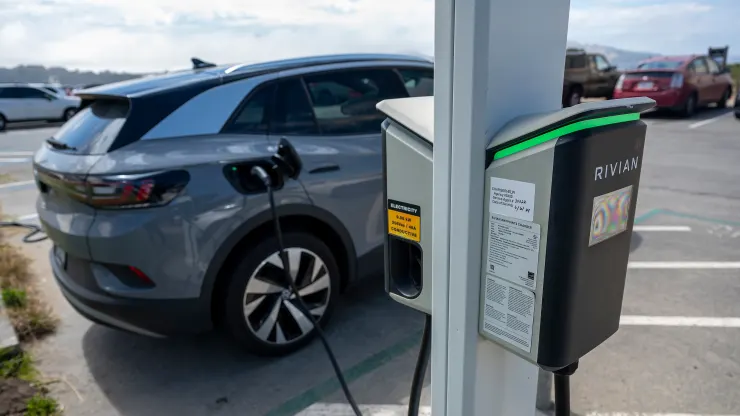Many factors affect their total cost over time when comparing electric vehicles (EVs) to traditional gasoline cars. Although EVs often come with a higher upfront price, their lower recurring costs for fuel and maintenance can lead to significant savings in the long run. However, the total cost of ownership can vary greatly depending on where you live and how you use your vehicle. Understanding these variables can help you make a more informed decision about whether an EV or a gasoline car is better for you.
Cost Comparison: EVs vs. Gasoline Cars
The average price for a new EV was around $56,000 in June 2024, compared to $49,000 for a gasoline vehicle, according to Kelley Blue Book. Despite the higher initial cost, EV prices are starting to close the gap due to reduced battery costs and available incentives. “The expectation is EVs will continue to get cheaper, largely driven by [lower] battery costs,” said Maxwell Woody, a researcher at the University of Michigan. Some smaller EVs are already nearing cost parity with gasoline models, even without additional incentives.
Long-Term Savings with EVs
According to a Consumer Reports study, Owning an EV can save between $6,000 and $12,000 over the vehicle’s lifetime compared to a gasoline car. This is mainly due to lower maintenance needs and cheaper refueling costs. “It’s also ‘significantly cheaper’ to refuel an EV due to its higher energy efficiency and generally lower electricity prices than gasoline,” explained Woody. Fewer moving parts in EVs contribute to reduced repair costs, making them a more economical choice over time.
Geographic Influence on Cost
Geography is crucial in determining the total cost of owning an EV. A 2024 J.D. Power study found that EVs have a lower total cost in most states except Maine and West Virginia. For example, in states like Colorado, Illinois, Nevada, and New Jersey, EV buyers can save more than $8,000 over five years. However, the cost of a 300-mile electric SUV can vary by up to $52,000 based on location due to differences in electricity and gasoline prices. “In places like Texas with meager gas prices, it’s harder for an EV to break even,” Woody noted.
The Importance of Home Charging
Access to home charging significantly impacts the financial benefits of owning an EV. Charging at home generally costs less than public charging stations, especially if you can take advantage of off-peak electricity rates. “If you don’t have access to home charging, it’s going to be hard to save money with an EV,” Woody said. Home charging can reduce the lifetime cost of a 300-mile midsize SUV by approximately $10,000 on average and up to $26,000 in some cases.
Deciding between an EV and a gasoline car involves considering various factors, including upfront costs, long-term savings, and your geographical location. While EVs are becoming more affordable and offer significant savings in maintenance and fuel costs, the financial benefits are greatly influenced by local electricity and gasoline prices and access to home charging. By carefully evaluating these elements, you can make a more informed decision that aligns with your financial goals and driving needs.







